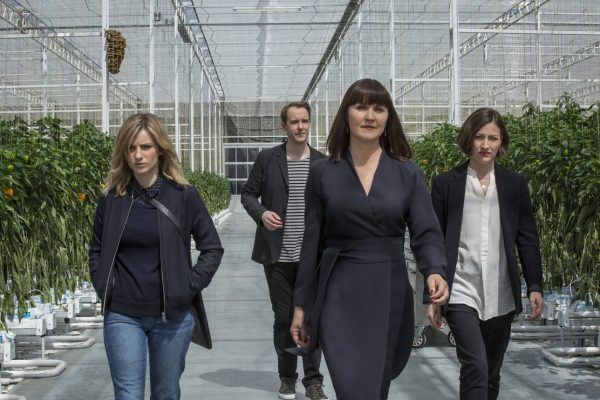“Black Mirror” Reflects A Dark Reality
Originally airing in the United Kingdom in 2001, “Black Mirror” was revived by Netflix in 2016. (COURTESY OF NETFLIX)
November 16, 2016
Sometimes, when it comes to college life, an escape from reality is necessary. This escape can be found through a variety of different mediums: books, movies, television, etc. But, the most convenient location to find many new realities to explore is one college students are pretty well acquainted with: Netflix.
The common Netflix viewer may be familiar with “Black Mirror,” a show that has been around for about two years now. But what differentiates this show from the average Netflix series? It does not simply provide one alternate reality to follow for the duration of the season—“Black Mirror” is unique in that every episode is completely unrelated to the others of the season. With each hour long segment introducing a new cast, new characters and a new plot altogether, every season of the series provides a diverse multitude of realities for viewers to enjoy.
Recently, to the delight of many devoted fans, a third season of the British anthology series “Black Mirror” was released on Netflix in October after a three year hiatus. As someone who had not watched the past few seasons, I was wary to begin watching the series during its third season. But as “American Horror Story” has taught me, not all television shows are necessarily meant to be watched in chronological order. As I jumped into this new season of a show I had zero experience with, I was pleasantly surprised with what I found.
Starting with the pilot episode of the season, it is clear that this show has a “Twilight Zone”-esque strategy of storytelling. Not only do the episodes create their own realities where unusual and interesting events ensue, but they also seem to make social commentary on the issues of our world.
“Nosedive,” the first episode of the season, brought the viewer into a world where all worth was based on ratings from other people on social media. This is a topic that hits close to home, as it is apparent that social media has become influential to the point of possible danger in today’s world. “‘Black Mirror’ is very interesting to watch because it works as both a means of entertainment and an identification of very real problems in our society,” Rachel Meyer, Fordham College at Lincoln Center (FCLC) ’20, said. “It is a very thought-provoking show that causes the viewer to reflect on aspects of their own lives.”
“Black Mirror” is a fascinating and terrifying look at our culture and the consequences of our actions,” Melanie Katz, FCLC ’20, agreed. Similar to “Nosedive,” “Shut Up and Dance” is an episode that also focuses on how much technology has impacted our lives. The episode zeroes in on the importance of reputation and embarrassment in the lives of teens.
A third effective episode from this new season is “Playtest,” which toys with our ability to distinguish between fantasy and reality. This episode plays upon the same idea brought to light by the hit movie “Inception” in 2010—the unsureness of our sense of self and consciousness, a deep and obscure route that our minds don’t usually take on their own.
Prior knowledge of the show is not needed to enjoy it. “Black Mirror” is an amalgamation of our fears and the consequences of our actions, combining these qualities in a disturbingly realistic manner, which is something that many Fordham students were able to appreciate on a meaningful level. “Everyone should watch at least a few episodes of ‘Black Mirror’—if not for its intrinsic entertainment value, then for the importance of its social commentary,” Jordan Meltzer, FCLC ’20, said.
The beauty of the show is that it is unique because it does not depend on order—for the busy, time-constrained student, It is an experience that requires little to no commitment. Whether you are in it for just the one hour, mini-movie experience or if you are looking for a new show to binge-watch, “Black Mirror” is an experience that many others could not successfully create.










